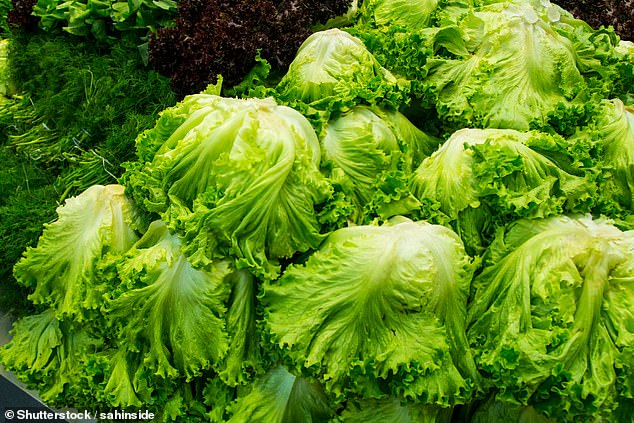Thirteen more people have been infected with E. coli and health officials say the number of cases has now reached 288.
However, no further deaths have been reported since the sole fatality attributed to the outbreak, believed to be linked to contaminated salad leaves, occurred late last month.
In the latest update, the UK Health Security Agency (UKHSA) said new cases continue to decline and all confirmed patients had symptoms before June 10.
They added, however, that they expect “a small number of additional cases” to be confirmed.
And in a sign the outbreak may be over, UKHSA said it will stop publishing new case numbers due to a decline in new patients.
Food safety officials have said they are “confident” that an Apollo-type lettuce has caused the outbreak of the diarrhea-causing bacteria. However, efforts are underway to confirm the root cause.
UKHSA incident director Amy Douglas said the declining rate of new cases was positive.
“It is encouraging that reported cases continue to decline, however, we still expect to see some more cases linked to this outbreak as more samples are sent to us for testing,” he said.
The infections are due to a dangerous strain of Shiga toxin-producing E. coli (STEC), and about half of known cases require hospital care as a result of the infection.
Symptoms of STEC typically range from mild diarrhoea to bloody diarrhoea, UKHSA says, with about half of infected people experiencing the latter.
Vomiting, fever and stomach cramps are other telltale signs of an infection.
However, it can also cause a life-threatening complication called hemolytic uremic syndrome (HUS), which can lead to kidney failure and death.
To date, seven cases of hemolytic uremic syndrome have been reported in the current outbreak.
The E. coli outbreak is believed to be linked to contaminated lettuce leaves earlier this month More than 60 Sandwiches, wraps and salads were sold at 11 major stores. They were placed under a “do not eat” alert as a precaution.
Experts believe the texture of lettuce makes it more likely to be contaminated with E. coli through water contaminated with feces from infected animals and the fact that it is not cooked, which would normally kill the microbes, increasing the risk.
Although most known cases are believed to have been caused by eating infected food, two are believed to have been transmitted from person to person, including through parents caring for children who became infected with the virus.
People have been advised to contact NHS 111 or their GP if they or their children show any symptoms of E. coli infection.
In children under five years of age, symptoms may include loss of interest in breast or bottle feeding and signs of dehydration, such as fewer wet diapers.
Both adults and children are advised to call NHS 111 or their GP if they continue to vomit for two days or have diarrhoea for a week.
Anyone who experiences bloody diarrhoea or bleeding from the anus should call NHS 111 or their GP immediately.
Infected people are advised not to return to work, school or daycare until 48 hours after symptoms have disappeared.


